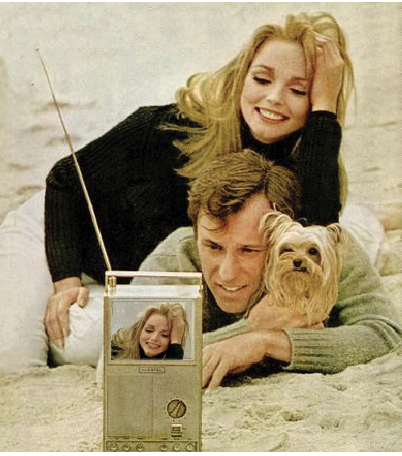It's common to critique social media by pointing out that users believe they are consumers but are in fact are the product, a packaged and labelled audience being sold to marketers, the real "users" of ad-supported social media. Or worse, users are both the product and the labor making the product, all for the benefit of the social-media companies that own it. This means we are not merely deluded but also exploited when we think of ourselves as "consuming" social media.
The assumption in this critique is that we don't want to be a product and instead want the agency and autonomous expression that social media seem to promise. From that point of view, users sign up on Facebook with the goal of expressing themselves and hearing what their friends have to say, but are eventually warped into becoming a kind of reified personal brand through exposure to the product's toxic affordances of self-quantification. Naive users think they are signing up for a personalized public sphere and then, undeterred by the evident oxymoron, find themselves in a hall of mirrors in which all they can see — and all they end up wanting to see — is themselves.
I've made that argument in the past, but it seems to presume a sort of haplessness in social media users, who don't know well enough to stop using services that are exploiting and stupidifying them. It doesn't seem adequate to explaining the pleasure users derive from social media, even as they become reifying and exploitive. I don't think users' continued use is strictly a matter of network effects and sunk costs, or even a matter of a cost-benefit analysis that permits them to rationally decide that personal data is a fair exchange for the services social media offer. Instead, I want to consider the possibility that users enjoy becoming the product.
The services that social media supply (holding a "graph" of one's social connections; amassing and archiving personal data; making the promise of an on-demand audience for oneself plausible; permitting a variety of pre-formatted modes of self-expression; offering algorithmically constituted recommendations of what you should read, who you should know, how you should spend your time; and so on) help constitute the self as something a user can consume. We get to be a commodity and consume it at the same time. We are like the hot dog putting ketchup on itself.
This self-commodification does not diminish the user's self-conception but rather makes the self conceivable, legible. The self as product is inherently not guilty of some of the deauthenticating aspects of agency which threaten the integrity of other versions of the self: being calculating, unspontaneous, manipulative, phony, etc. The self as product can be seen as something that simply is, a given thing articulated in a definite form. It enters the realm of the socially conspicuous.
Only as a product can we recognize ourselves as "genuinely" real, given the amount of attention and effort collectively directed at enchanting and foregrounding products within a consumer-capitalist culture. We are ideologically trained, repeatedly, every day, to love consumer goods; naturally we would want to become a consumer good ourselves, to appear deserving of love — from ourselves as well as from other people (who, on social media, offer quantifiable tokens of that deserved love in the likes and so on).
Products in consumer-capitalist culture quickly lose their lovability, however, as they lose their novelty. They become moribund. They become trash. Consumerism relies on disposability and the perpetual renewal of consumer desire, of discontented people constantly demanding more for themselves. This allows for the limitless expansion of demand in the economy. Consumerist ideology fuses this potential for limitless demand to a consumer's self-growth, also conceived as potentially limitless. We grow through developing the ability to want more things. This converts an economic imperative into a moral one: I must embrace my limitless potential and find ways to express it, or else fail as a human being.
Growth itself, as a personal goal, is adapted from the capitalist necessity of pursuing limitless accumulation in an economic environment of growth or death. Personal growth is a matter of continual dissatisfaction, of refusing to be content, even as we make ourselves into content. Anything that I start to think I know about myself seems not merely familiar but fake. What is real about me is what I discover about myself (usually in the form of fresh desire), not what I already know, which I have consumed already.
So the self, as a product, loses its enchantment for us and needs to be revitalized to the extent that it becomes familiar, known, understood. We love ourselves only as a novelty, a mystery, not as a staple product. We want to be able to apprehend ourselves as a new, desirable thing that we can consume and enjoy. This makes us feel relevant, marketable. We can imagine someone buying into the idea of us, and that helps us buy into ourselves. But inevitably our desire for ourselves needs to be renewed, and we will need to be repackaged.
It seems untenable to feel authentic only when you're surprising yourself. Social media try to make this contradiction seem to cohere. They offer ways in which to always consume ourselves anew as new. Algorithmic recommendations in particular cater to this hope of seeing a stranger in the personal data we've generated, an alien person we can claim as a real self. They can enlarge our ability to desire (making us grow) while seeming to draw on true information about us that we have somehow provided. Everything you have consumed and expelled online gets purifed and re-presented as new desires, a new you.
By processing our personal data into things like Facebook's Newsfeed, algorithms can present us with a carefully repackaged self. We then get the thrill of unboxing ourselves as if we were a coveted new product and seeing what surprise awaits within. That this box we are continually rewrapped in is also a cage can be more readily excused. In that cage, we will only see what reinforces the central importance of novelty, but it won't matter as long as we feel new ourselves.

